Recommended Readings
Measure What Matters: How Google, Bono, and the Gates Foundation Rock the World with OKRs
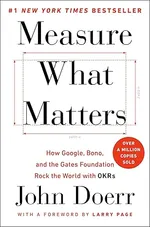
I really enjoyed reading "Measure What Matters" and found myself genuinely inspired by it. The OKR concept feels deceptively simple, but I think that's actually its strength. What struck me most was how this felt like finding the missing piece of a puzzle. I've been working through books like "Essentialism" and "Accelerate," while following Cal Newport's Deep Work content, and trying to figure out how to connect all these ideas about focus and high performance. OKRs seem to be that connecting framework I was looking for.
The book's title has honestly become a bit of a mantra for me during management and leadership discussions. It feels like we have lots of metrics, a giant list of goals that are really just "meeting expectations," but nothing that genuinely inspires, motivates, or impacts the business in a meaningful way. This is exactly the problem OKRs are designed to solve.
Doerr includes quite a few case studies—maybe one too many—but I appreciated seeing how OKRs worked across such a wide spectrum of organizations. The history and early Google story were particularly compelling. There's something compelling about understanding how these ideas actually took root and produced those early big wins. That said, I wish he had covered the nuance between committed versus aspirational goals earlier in the book—or maybe I missed it on first reading. That distinction seems crucial but felt buried until later chapters.
One thing that has really sparked my curiosity after reading the book is the psychological aspect of really ambitious goals, especially for high performers. I keep thinking about people who are used to always hitting their targets suddenly having 70% achievement as a winning grade. In our manufacturing operations, we're accustomed to 90%+ OEE achievements and similar high scores. (We can argue about how we measure that and whether it's actually true another time.) The idea of suddenly having lower targets might feel like a step back in achievement or efficiency to teams that take pride in consistently hitting their numbers. How do you manage that cultural shift?
I'm genuinely excited to try this within my group, but I've already felt some resistance from senior leadership. The feedback seems to center around concerns that the organization isn't mature enough to handle it, or the classic "we don't do that here" or "what we have works just fine for us" responses. I found that surprising since it seems like such a solid methodology. What I would have loved was more detail about failures—both failures to implement OKRs properly and cases where they just didn't work. What are the warning signs? What problems should you watch out for? The success stories are inspiring, but I learn more from understanding what goes wrong.
If I was starting a new group or a new company tomorrow, I'd push hard on implementing OKRs from day one. The Google Playbook at the end provides a solid framework for that kind of implementation. But in an existing organization with established patterns and expectations? That's going to require more finesse and probably some pilot projects to demonstrate value.
Finally, I really need to try these in the real world to gather more data and understand if my initial excitement is warranted. Sometimes the best ideas look great on paper but face different challenges when they meet actual people and processes. The concept feels right, but execution is everything.
The Richest Man in Babylon
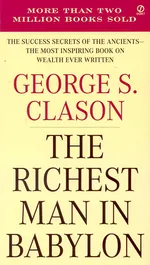
The Richest Man in Babylon by George S. Clason isn't a tech book, but I slip it into my reading lists when young developers ask for career advice. I believe helping them be successful with money helps them be successful in their careers. Nearly a century old, but the financial wisdom still works.
The core message is simple: pay yourself first, save at least 10% of what you earn. Sounds basic, but that's the point. Building wealth isn't about complex strategies—it's about forming habits early and sticking to them.
I find that having the parables set in ancient Babylon give the stories a richer character and let you reflect on the messages better, since they're set in a different era and context. Strip away the setting and you get solid advice: live below your means, make your money work for you, avoid get-rich-quick schemes. For developers dealing with startup equity, corporate restructuring, and the general chaos of tech careers, this steady approach makes sense.
I've recommended this to a lot people over the years, especially those getting their first real paychecks. I don't know if it's helped anyone, but I want to believe it has. It certainly helped me navigate my career with more confidence.
At 100 pages, it's a quick read that could shape how you think about money for decades.
Accelerate

I saw references to this book while I was researching implementing KPIs for my development teams, but it wasn't until I spoke with some folks at Microsoft and got pointed towards Dr. Forsgren's presentation on the SPACE framework that it clicked what this book was.
So, I bought the book. Then I saw the forward was written by Martin Fowler(!). Then I read that forward, and the other forward! And then the quick reference at the start of the book! Man, at that point really excited and I hadn't even gotten to the preface. I could feel it in my bones this was going to be an impactful book for me.
And wow, did it deliver. This book perfectly captured so much of what I'd been thinking and doing instinctively, but now backed with actual research data. Four years of surveys from 23,000+ respondents isn't just compelling - it's absurdly validating when you see practices you've been championing actually correlate with better business outcomes.
The four key metrics - lead time, deployment frequency, mean time to recovery, and change failure rate - gave me language and measurements for conversations I'd been having with leadership and my teams for years. Suddenly I could point to data showing that yes, investing in continuous delivery and empowering teams actually does improve the bottom line.
What really got me was how they proved culture isn't some fluffy concept. Generative, high-trust cultures directly impact performance. All those times I've put the team first, improved our processes, and focused on continuous learning, empowerment or innovation? Turns out that wasn't just being nice - it was being strategic.
The anti-patterns woven throughout the book really hit home too. It's eye-opening to see how traditional governance approaches like Change Review Boards, aka Security Theater, often don't deliver the reliability they promise, while proper CI/CD practices can achieve better outcomes with less overhead. Made me think differently about some of our current processes.
Essentialism: The Disciplined Pursuit of Less
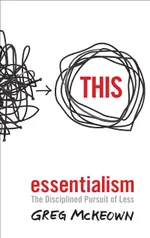
I came to this book through Greg's podcast, which I found through Cal Newport's podcast, and by the time I got to it, I'd already listened to a fair bit of Greg's content. I was intrigued by the idea of Essentialism. It has a nice dovetail with the Deep Work concept that Cal Newport is (in)famous for.
The core tenet of Greg's Essentialism philosophy is "less but better", which I really liked. I liked the "less but better" concept, I liked the bits about effortless execution, and I liked the bits about using routine, habits and their triggers. However, as I turned each page and nodded my head I kept thinking "Yup, this is good, but give me more substance". As I got near the end of the book I sat back and contemplated what I'd read, how I'd apply it to my life and teams. At that point, while I felt that the book was a worthwhile read, I wasn't sure I was going to add it to my recommended reading list. And then... And then I got to the final chapter which is geared for leaders in organizations! It's excellent and I wish there was a whole book dedicated to that. However, that chapter wouldn't have been as good or made as much sense without the concepts in the first parts of the book.
So, my recommendation is, if you lead people and are interested in high-performing teams you should read it—the whole thing.
Zero to One: Notes on Startups, or How to Build the Future
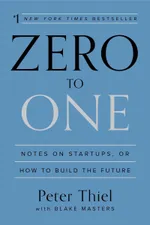
I almost didn't include this book in the list because I initially found it depressing and demotivating because of the focus on BIG successes and creating a company 10 times better than its next competitor. The seemingly insurmountable and unlikely convergence of a 10x idea, with someone with the drive and belief to build a successful company, AND having excellent execution to accomplish it, initially put me off it. However, once I put all that into a box on the shelf and focused on what he was saying, it was inspirational. My inner contrarian was certainly gleeful at parts of the book and revealed in the idea of: yes, but what if...
I found the sections about history, globalization, and definite vs indefinite optimism interesting. I also found his insights on startups, small companies, and the last-mover advantage interesting and insightful. In particular, this quote resonated with me:
"A new company's most important strength is new thinking: even more important than nimbleness, small size affords space to think."
If you're interested in business, startups, or starting a business, it's worth a read.
The Joy of UX

A good (re)introduction to usability and user experience. I found the concept of personas a good tool to help define the user experience. The 10 commandments in chapter seven are good guidelines for designing a user-centric interface. The chapter on telemetry has a reasonably good explanation of what metrics to collect. There is also a brief discussion of the number of users that are required to run a good usability test and it was much lower than I expected. The author suggests that 3 test users are a reasonable minimum number. Finally, the two case studies tie the concepts together using real-world examples using the various techniques.
Peopleware - Productive Projects and Teams
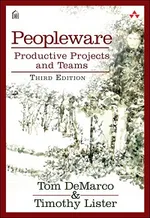
This was one of the first books I read when I started managing a team and I can't recommend it enough. Peopleware is one of those books that you hear referenced over and over in our industry and it's for good reason. It reinforced the hazy, roughly-defined idea of what type of manager I wanted to be, and provided a solid basis for what made a good team work effectively, productively and happily together. I still pull it off my shelf periodically for a refresher.
The Year Without Pants
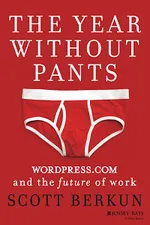
The Year Without Pants is a humorous insight into how Automattic runs, from a new team lead's perspective. It's a great read for anyone interested in Automattic's unconventional, effective and distributed management philosphy. Actually, it's a pretty great read for anyone, but I think it'll be most appreciated by software folks. This book really reinforced my belief that remote teams are the future and that being a remote team doesn't mean sacrificing relationships, collaboration or company culture.